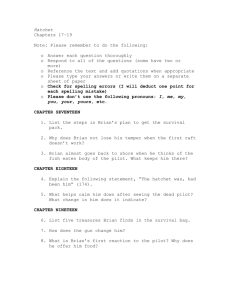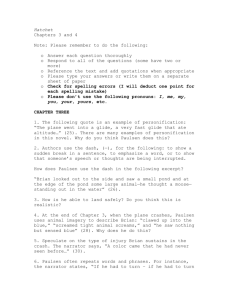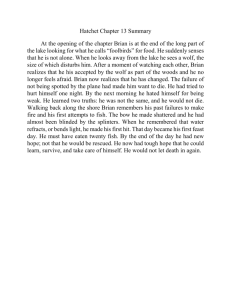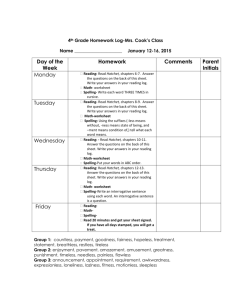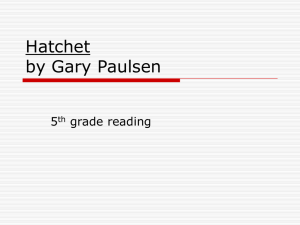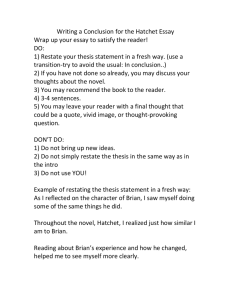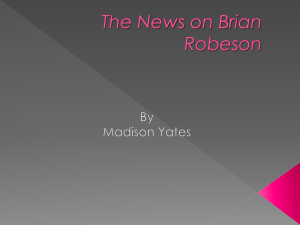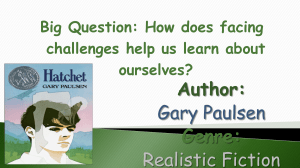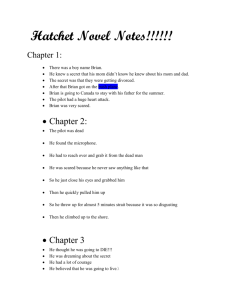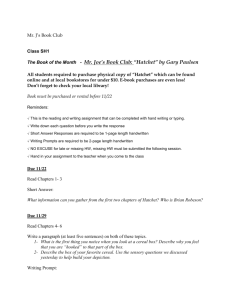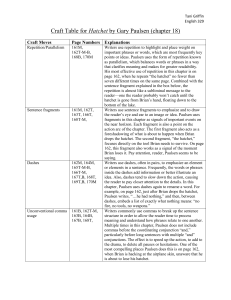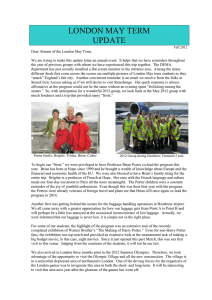Hatchet Chapters 11-13 Note: Please remember to do the following
advertisement
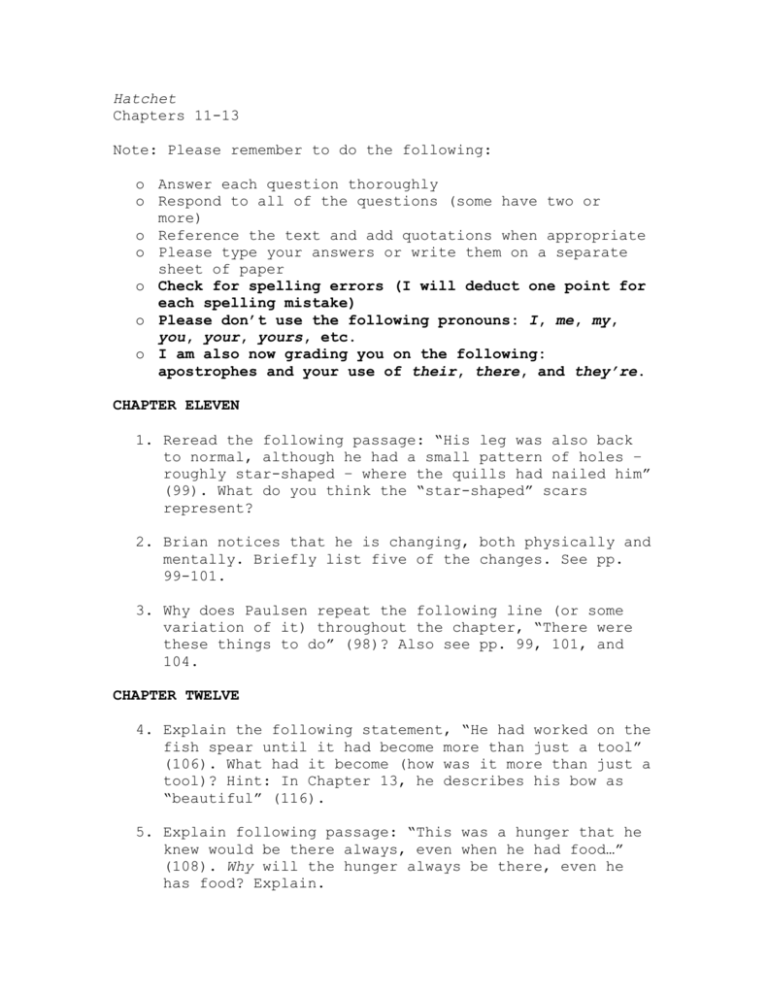
Hatchet Chapters 11-13 Note: Please remember to do the following: o Answer each question thoroughly o Respond to all of the questions (some have two or more) o Reference the text and add quotations when appropriate o Please type your answers or write them on a separate sheet of paper o Check for spelling errors (I will deduct one point for each spelling mistake) o Please don’t use the following pronouns: I, me, my, you, your, yours, etc. o I am also now grading you on the following: apostrophes and your use of their, there, and they’re. CHAPTER ELEVEN 1. Reread the following passage: “His leg was also back to normal, although he had a small pattern of holes – roughly star-shaped – where the quills had nailed him” (99). What do you think the “star-shaped” scars represent? 2. Brian notices that he is changing, both physically and mentally. Briefly list five of the changes. See pp. 99-101. 3. Why does Paulsen repeat the following line (or some variation of it) throughout the chapter, “There were these things to do” (98)? Also see pp. 99, 101, and 104. CHAPTER TWELVE 4. Explain the following statement, “He had worked on the fish spear until it had become more than just a tool” (106). What had it become (how was it more than just a tool)? Hint: In Chapter 13, he describes his bow as “beautiful” (116). 5. Explain following passage: “This was a hunger that he knew would be there always, even when he had food…” (108). Why will the hunger always be there, even he has food? Explain. 6. What does this sentence mean: “He could not play the game without hope; could not play the game without a dream” (112)? CHAPTER THIRTHTEEN 7. When he doesn’t die, what does Brian come to realize about his life and himself? See p. 117. 8. Brian makes up names for his special days. What two names does he give to the day he catches a fish? Why is it significant that he makes up these special days? 9. Define “clouddown” and “tough hope.” See pp. 116 and 120. Also, in your response, explain how his definition of hope has changed.
